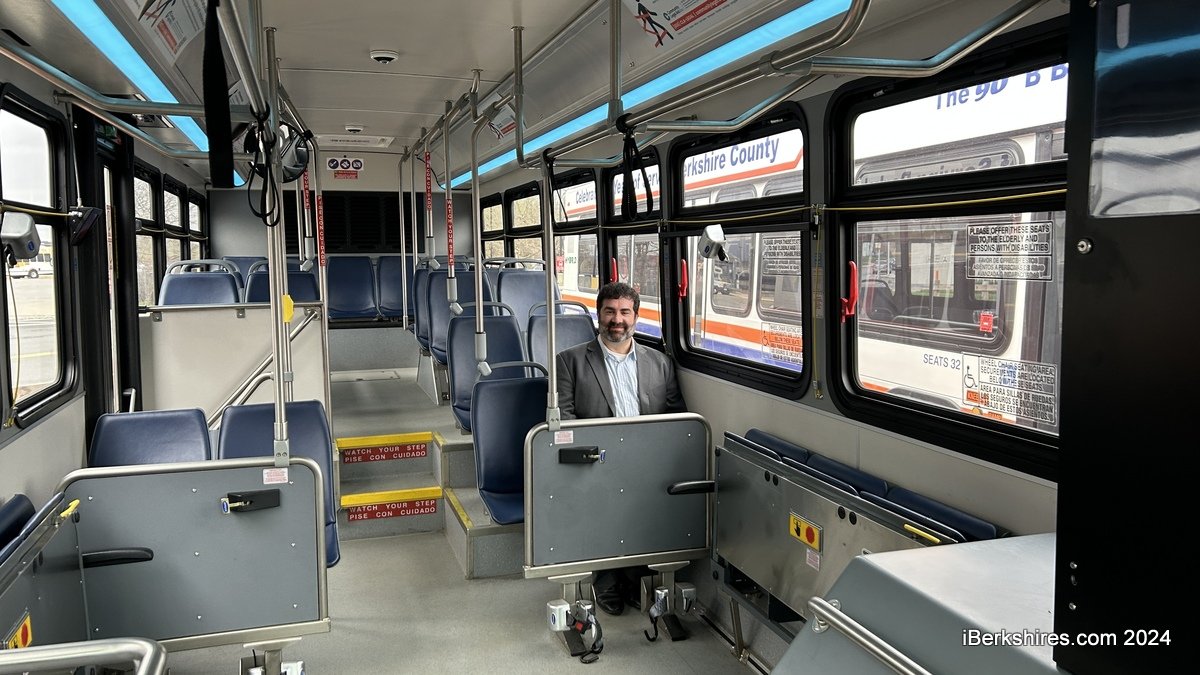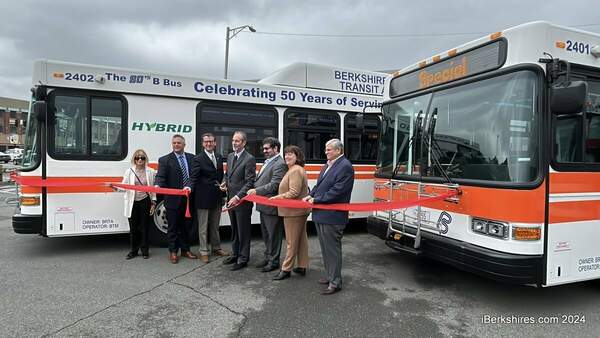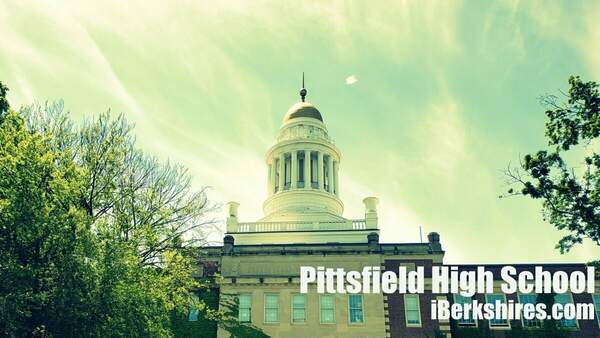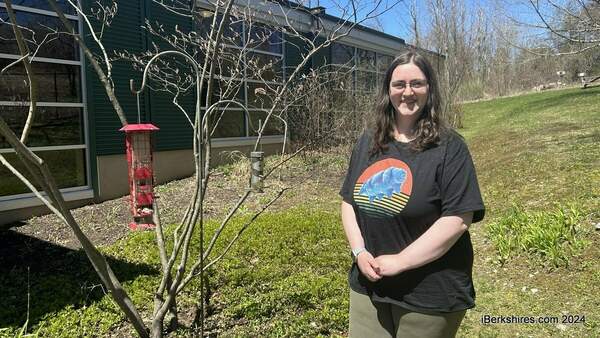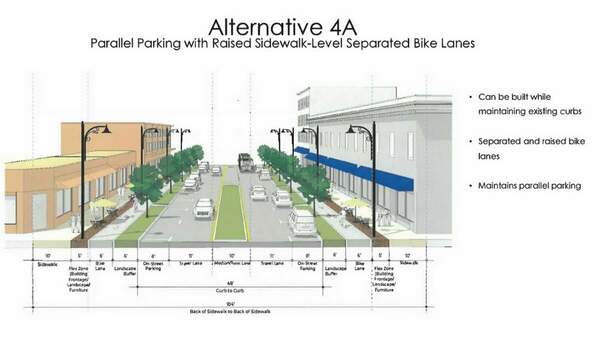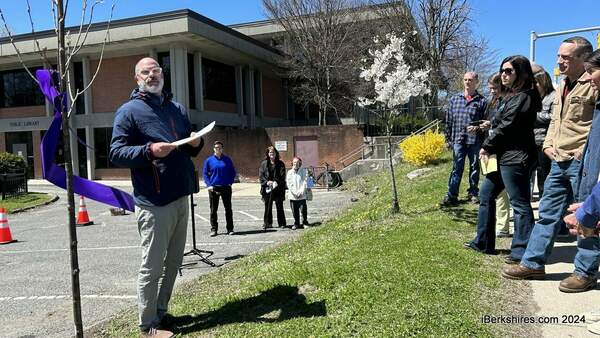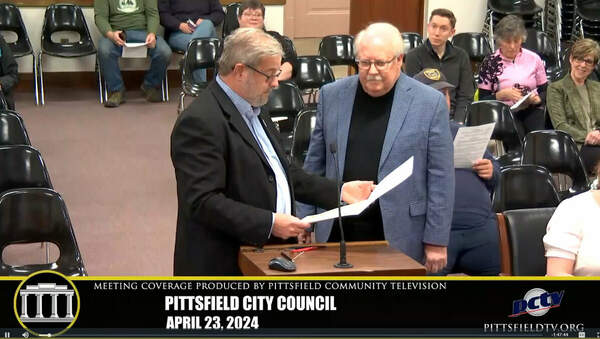Marchetti Defends Pittsfield Tax Rates in Advance of FY25 Budget
PITTSFIELD, Mass. — Mayor Peter Marchetti defended the city's tax rate on Tuesday, asking residents to look at all of the figures before making a judgment.
While Pittsfield ranked the highest tax rate countywide in fiscal 2024, the average bill ranked 10th. The administration also provided data showing that there has been a 37.9 percent increase in the value of single-family homes from FY20 to FY24 and a 6.4 percent decrease in the residential tax rate during this period.
"When we continue to hear about how we're comparing to other communities and we've heard it several times that jeez, we're the highest tax bills in Berkshire County, I think using the data from (the Department of Revenue) and (the Division of Local Services) we can prove that that is not necessarily the case," Marchetti said during a joint City Council and School Committee meeting.
In FY24, the residential tax rate was $18.45 per $1,000 of valuation and the average home was assessed at $268,000, making the average tax bill nearly $5,000 annually. The mayor plans to submit a proposed FY25 budget to the council on May 14.
Early in the term, the City Council supported a petition from Councilor at Large Kathy Amuso requesting a budget that is "close to level-funded" due to concerns about tax increases. Marchetti said even if the administration were to provide a level-funded budget, he would still be standing in front of the body in December asking for a tax increase.
The potential impact of a level-funded budget would be:
- the city not being able to renew its Massachusetts Municipal Association membership.
- the closure of a fire station on a rotating basis due to a reduction in overtime
- a loss of 11 police officers due to a reduction of overtime
- a reduction of five Highway Department employees and two Parks Department employees
- a reduction of the building inspector's administrative assistant
- the reduction of one full-time librarian and the Berkshire Athenaeum closing earlier on Thursdays
He has asked each department to provide three spending plans: a level-funded, a level service-funded, and a wish list — though essentially no wish list items have been expressed. A level service-funded budget is the goal.
Amuso reported the high volume of calls she gets from residents about the "astounding" and "alarming" tax bills, explaining "I do not want to dismantle departments but we can do better." She doesn't see taxes being reduced but would like the city to explore all options to lessen the burden on taxpayers as much as possible.
"Although I didn't really appreciate a petition on day seven that said, 'Hey, you need to do these,' we took your petition seriously, we went through the exercise," Marchetti said.
"I've been able to provide what those ramifications will be. It's not something that as a vision for the city I support, I think many of the people that I've talked to don't support as well, and I think most of you all now seeing the numbers don't support either. That doesn't mean that we have a blank check."
Ward 1 Councilor Kenneth Warren asked that the administration look at the average income of Pittsfield residents as compared to the tax bills, speculating that residents have lower incomes than other communities.
To date, the city has collected $11.5 million for local receipts, or 90 percent, and $53.4 million for state aid, or 73 percent. Of the $109.3 million appropriated budget, it has expended nearly $84 million.
The "not ideal" school budget is seeing a $3.7 million gap in funding largely due to the sunsetting of Elementary and Secondary School Emergency Relief funds and a dramatic decrease in Chapter 70 funding due to what the administrators said is a technical error.
After showing a decrease in the percentage of low-income students, the district is being docked $2.3 million after missing the cutoff for a higher reimbursement group by 0.04 percent.
The City Council supported a resolution calling for legislative change to fully reflect recent inflation in the Chapter 70 definition of the foundation inflation index for fiscal 2025 and to eliminate the cap in future years to restore the purchasing power of district Foundation budgets to reflect the intended resource allocations of the Student Opportunity Act.
Marchetti said he will share some "hopeful positive news" in the near future but that Superintendent Joseph Curtis, Assistant Superintendent for Business and Finance Kristen Behnke, and himself have been working diligently with the Department of Elementary and Secondary Education and the Legislature to resolve the issues.
The school is anticipating the reduction of more than 100 staff members to bridge the $3.7 million gap.
"I do want to note that these reductions we are making aren't ideal, are not, and I don't think anyone here believes they are ideal cuts at all," School Committee member William Garrity said.
Tags: fiscal 2025, pittsfield_budget, tax rate,

